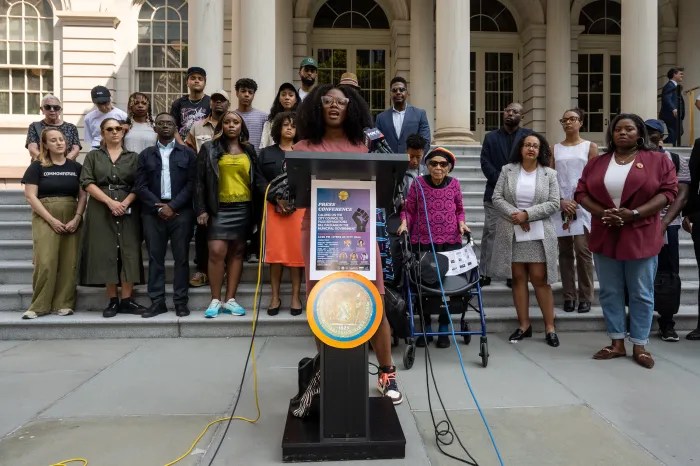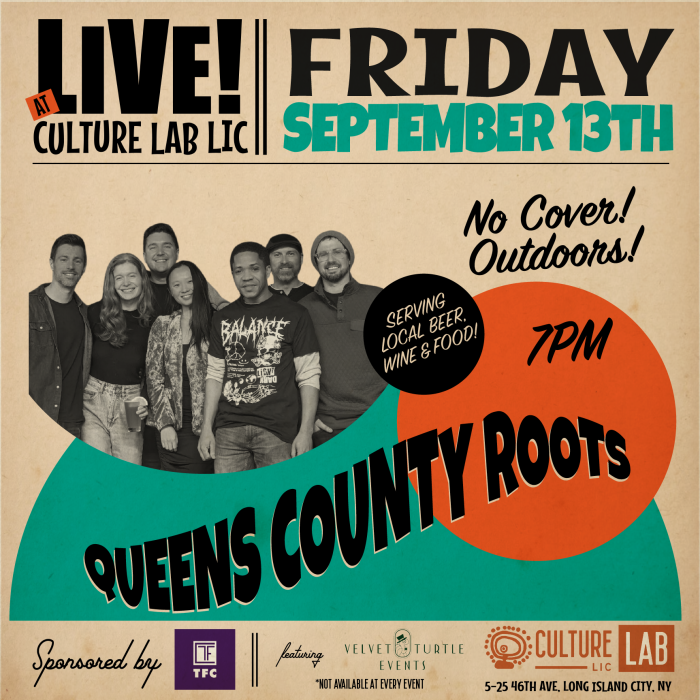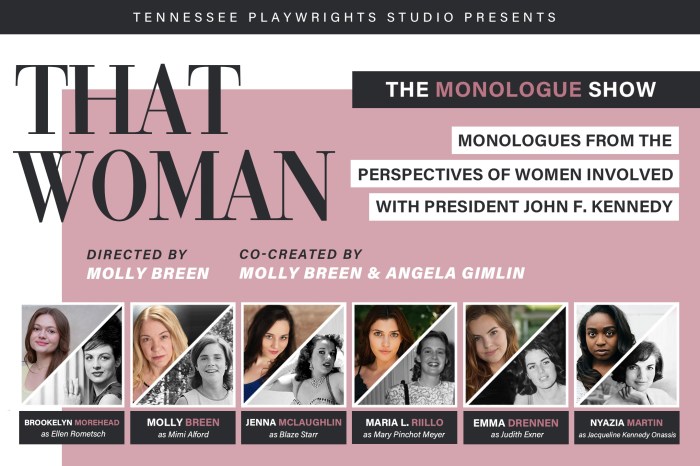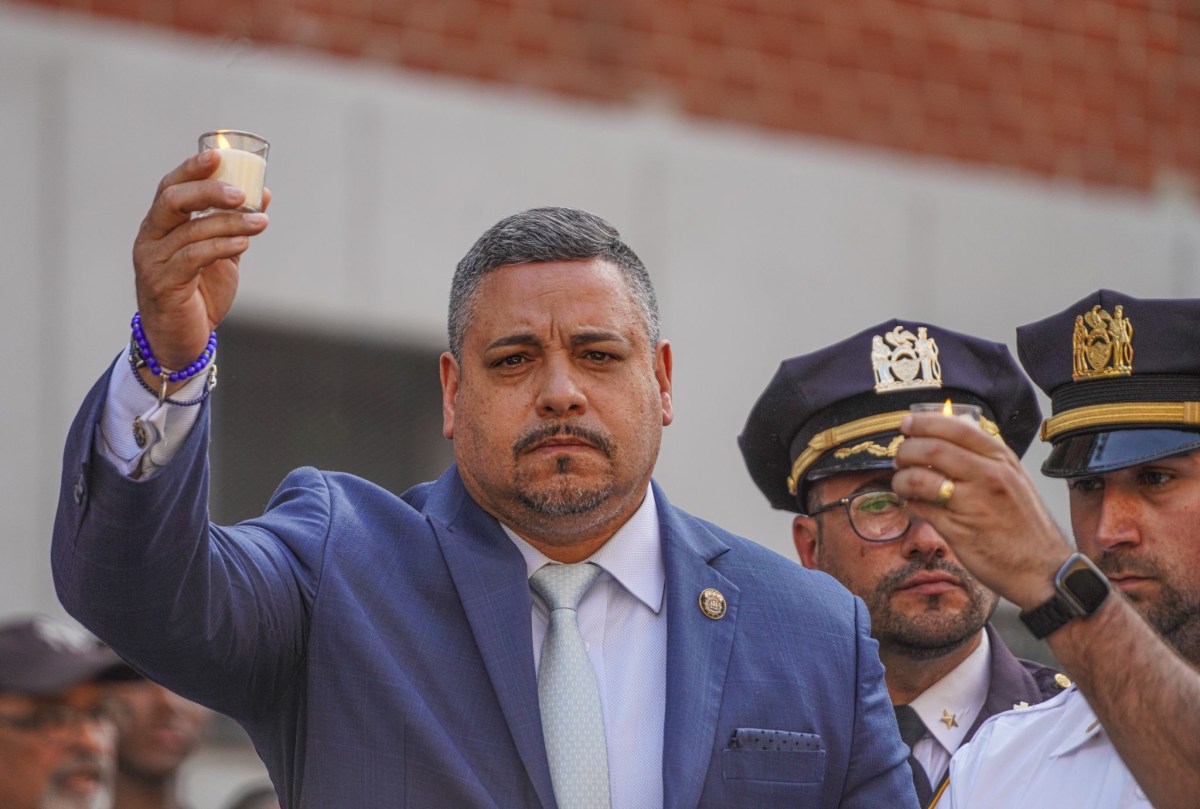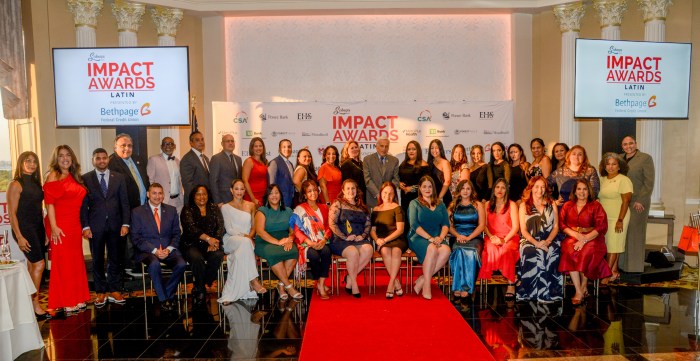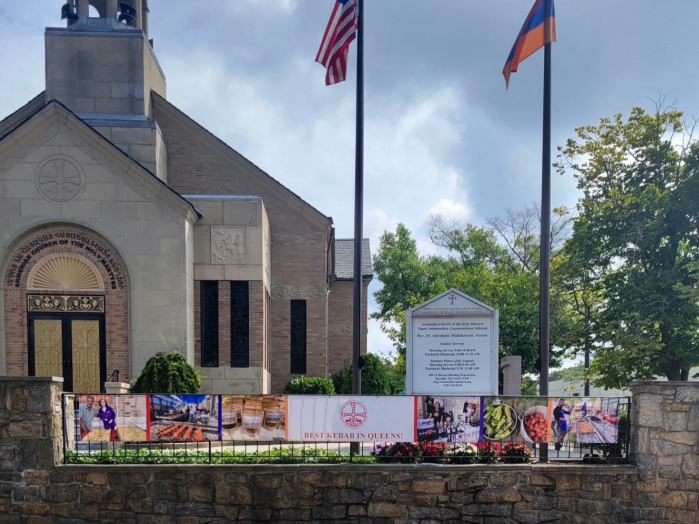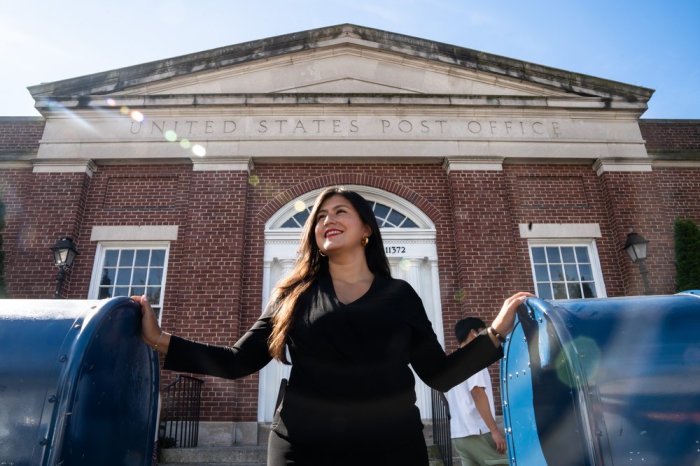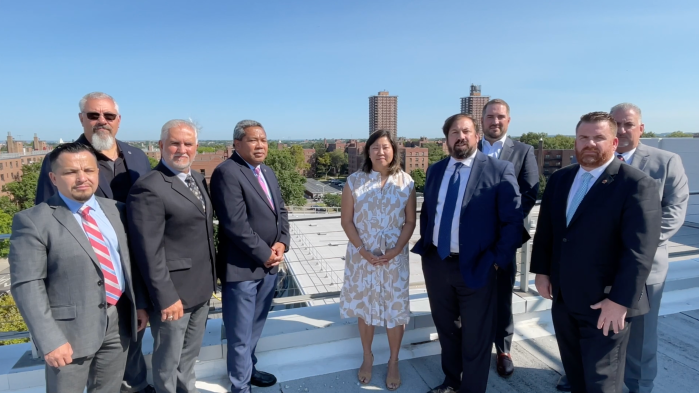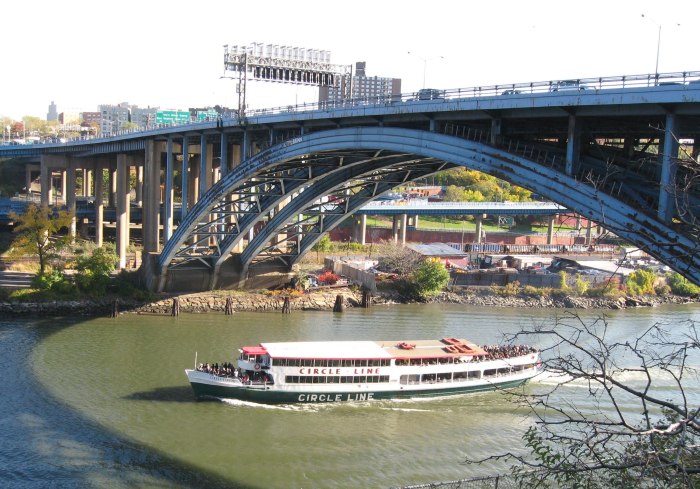The New York City Council on Thursday passed a package of bills addressing the legacy and impact of slavery in the city, aiming to advance racial justice for millions of New Yorkers of African descent.
Shortly before the vote, a coalition of elected officials, community leaders, and advocates gathered on the steps of City Hall — built by enslaved Africans — to outline the details and significance of the legislation.
Slavery is often associated with the South, but in the 1700s, New York City had one of the highest rates of slave ownership in the country. A slave market operated on Wall Street — built by enslaved people — between Pearl and Water streets from 1711 to 1762. Although New York abolished slavery in 1827, Wall Street continued to profit from the illegal international trade of enslaved Africans, conducting business with visiting slave owners and trading goods produced through slave labor.
One proposal, Intro 279-A, sponsored by Council Member Farah Louis (D-Brooklyn), requires the Commission on Racial Equity (CORE) to study the impact of slavery in New York City and consider reparative measures.
“The reparations movement is often misunderstood as merely a call for compensation for the enslaved Africans who built this country and this city, but it is far more than that,” Louis said. “It is a testament of our unwavering commitment to acknowledging and addressing the deep-rooted injustices that have plagued our society for centuries.”

Another bill, Intro 833, sponsored by Public Advocate Jumaane Williams, requires the city to install a historical marker at the correct site of the city’s first open-air slave market at the intersection of Wall and Pearl streets. A sign installed in 2015 at Wall and Water streets turned out to be at the wrong location.
Williams highlighted the significance of the legislation at a time when some states are attempting to erase the history of slavery and racism.
“When you find out that the first commodity on Wall Street was actually human beings that looked like myself and my relatives, that does a lot to you,” he said.
Council Member Nantasha Williams (D-Queens), Chair of the Committee on Civil and Human Rights, sponsored Intro 471, which establishes a task force to create a citywide freedom trail, including one in Lower Manhattan.
“This package of bills is not only about reparations. It’s not only about the truth, because we know across the country we are seeing truth completely eviscerated,” Williams said. “It is also about making sure that we remember, through markers and trails.”
Council Member Crystal Hudson (D-Brooklyn) sponsored Intro 242-A, which requires CORE to create a Truth, Healing, and Reconciliation Process to address the ongoing harm slavery continues to cause in Black and Brown communities.
“Our nation’s inability to properly redress such a historic wrong allows this deep injustice to continue to manifest itself in distinct and tangible ways, be it the prison industrial complex, predatory lending, redlining, or inequality in our school systems,” Hudson said.
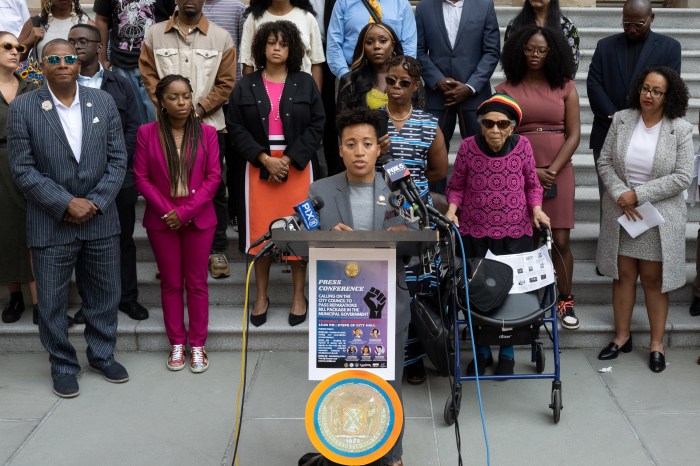
New York State has already taken similar steps. In December, Governor Kathy Hochul signed S1163A, a bill that established the “New York State Community Commission on Reparations Remedies,” creating a statewide reparations task force.
State Senator James Sanders Jr. (D-Queens) and Assembly Member Michaelle Solages (D-Long Island), who sponsored the bill in the State Legislature, joined their local colleagues for the historic vote.
Sanders reminded the audience that enslaved Black people built Wall Street. Freed slaves were given land north of Wall Street, but only because, if attacked by Indigenous tribes, they would be the ones on the front line.
“But that was a Black area. Imagine what that land would be worth if those people still owned that land,” Sanders said. “This is what we’re talking about when we speak about reparations. We’re not speaking about something from a billion years ago. We’re speaking about something today and ongoing.”

